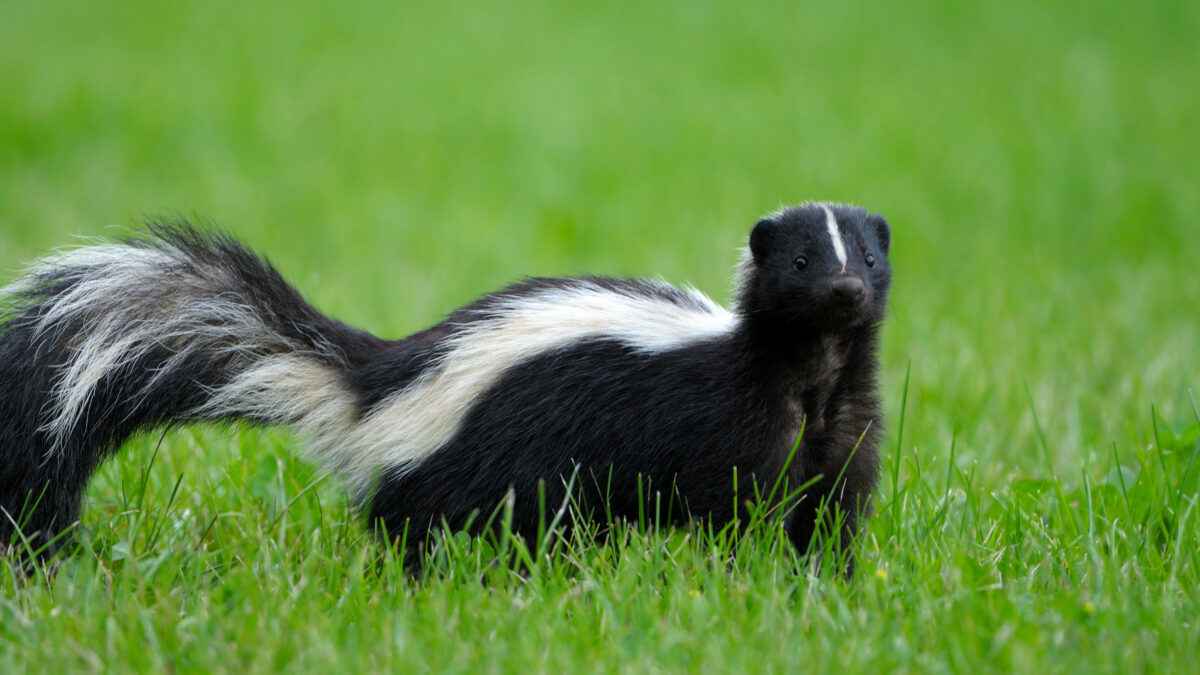Skunks, their distinctive black and white fur and potent defensive spray, are fascinating creatures that captivate our curiosity. One common question that arises is whether skunks hibernate. In this in-depth exploration, we’ll unravel the mysteries surrounding skunk behavior during the winter months.
Hibernation: Do Skunks Hibernate?
Do Skunks Hibernate – Understanding Hibernation
Before delving into the skunk’s winter habits, let’s clarify what hibernation entails. Hibernation is a state of dormancy where an animal’s metabolic rate decreases significantly, allowing it to conserve energy during periods of extreme cold or food scarcity. True hibernators, like ground squirrels and bats, experience a profound drop in body temperature and metabolic activity.
Do Skunks Hibernate – A Closer Look
Unlike some mammals that undergo true hibernation, skunks have a different approach to surviving the winter. Skunks are not considered true hibernators because their body temperature doesn’t experience the drastic drop seen in animals like groundhogs. Instead, skunks enter a state known as torpor.
Skunk Torpor: The Winter Survival Strategy
Torpor is a state of reduced activity and metabolic rate that allows animals to conserve energy without the full physiological changes associated hibernation. Skunks enter a period of torpor during the coldest months when food becomes scarce, and the winter chill sets in.
During torpor, a skunk’s body temperature and heart rate decrease, enabling it to save energy. However, unlike hibernation, skunks can awaken from this state relatively quickly if disturbed or if a warm spell occurs.
Skunk Behavior in Winter
While skunks don’t hibernate in the truest sense, their winter behavior is marked by reduced activity. They tend to create cozy dens in protected areas, such as hollow logs or burrows abandoned by other animals. Skunks might share these dens others, exhibiting a surprisingly communal aspect during the colder months.
The Winter Diet of Skunks
Food scarcity is a driving factor for entering torpor. Skunks adjust their diet during winter, focusing on readily available resources. Insects, small mammals, fruits, and plant matter that can be foraged without much effort become staples during the colder months.
Implications for Skunk Watchers
For those interested in observing skunks, winter can be a challenging time. Reduced activity and altered feeding patterns mean skunks are less visible during this period. However, it’s crucial to respect their space and not disturb their dens, as waking them from torpor prematurely can be detrimental to their health.
Conclusion
In conclusion, while skunks don’t undergo true hibernation, they employ a survival strategy of torpor during the winter months. Understanding this aspect of skunk behavior adds depth to our appreciation of these unique creatures. As winter sets in, skunks adapt to the challenges, reminding us of the incredible diversity of nature’s survival tactics.
Discover the secrets behind the rich cultures of the Aymaraes, the Nuckelavee, the Gancanagh, the Kazakh, the Sami People, the Ainu of Japan, the Adivasi, the Akha People and many more on AmplifyGlobe.
